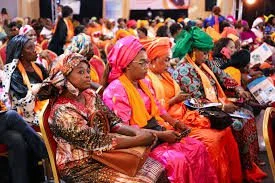 Across West Africa, women are increasingly stepping into key political roles, changing the landscape of governance. On this day, notable female leaders across the region are being recognized for their significant contributions in the political space, continuing to push the boundaries for gender equality and social change.
Across West Africa, women are increasingly stepping into key political roles, changing the landscape of governance. On this day, notable female leaders across the region are being recognized for their significant contributions in the political space, continuing to push the boundaries for gender equality and social change.
One of the standout figures is Ellen Johnson Sirleaf, the former president of Liberia, who in 2006 made history as Africa’s first elected female head of state. Her legacy of leadership continues to inspire women throughout West Africa, leading to the rise of female politicians in countries such as Ghana, Nigeria, Senegal, and Sierra Leone.
In Nigeria, Ngozi Okonjo-Iweala, a globally renowned economist, continues to pave the way for women in governance. Though primarily known for her work in international organizations, she remains a role model for Nigerian women aspiring to enter politics and economics.
Senegal has also seen significant progress, with Aminata Touré becoming a key political figure. She has been instrumental in advocating for women’s rights and political inclusion, and in 2021, she held a prominent position as head of the Economic, Social, and Environmental Council.
In Ghana, women such as Samira Bawumia have taken leading roles in advocating for social welfare and women’s empowerment. Her initiatives aimed at enhancing education and healthcare for women and children continue to resonate across the country. Women in West African politics are now more visible and are championing causes ranging from healthcare reforms to gender-based violence legislation.
As political parties across the region open their doors to more female leaders, the number of women in decision-making roles has steadily increased. Legislative changes, advocacy from civil society groups, and the influence of international organizations have also contributed to this growth. In Sierra Leone, for instance, women have gained more parliamentary representation and are pushing for stronger laws to protect women’s rights.
While the progress is notable, challenges persist. Cultural biases, gender discrimination, and political violence remain obstacles for many women seeking political office. Nonetheless, the achievements of these women show that the future of politics in West Africa is becoming more inclusive, with women playing a central role in shaping governance.




















